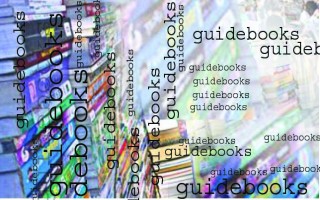Draft education bill to allow guidebooks, coaching
The government has decided to allow guidebooks as education assistance materials and coaching as private supplementary tutoring or shadow education, as set out in the final draft of the Education Bill 2016.
Both of guidebooks and coaching have so far been deprecated as harming the proper learning of students.
The final draft dropped an earlier proposal for quomi madrassahs to have a mandatory approval for establishment and functioning.
It also dropped another earlier proposal for making provisions of establishment of student unions through elections at the educational institutes.
Educationists have expressed grave concern over the government decisions.
Allowing guidebook and coaching would cause ‘catastrophic’ damage and increase the cost of education, said Dhaka university professor emeritus Serajul Islam Choudhury.
‘If the government sticks to its plan, education would become a commodity fully. Guardians will run after coaching and guidebook and no appropriate lesson would not take place at the classroom,’ he added.
Education minister Nurul Islam Nahid said that the final draft of the education act would be sent to the cabinet division soon. ‘We have prepared the draft consulting all stakeholders, and if needed we would consult them again,’ he said when asked about the rationality of the decisions.
The ministry on January 26, 2011 asked a subcommittee of the education policy implementation committee to draft a bill for a law
on education in line with recommendations of the National Education Policy 2010, which said that a law was necessary for the proper implementation of the policy.
The draft bill was posted on the website of the education ministry on August 7, 2013 soliciting public opinions and the ministry subsequently received several hundred recommendations. An amended draft of the bill was prepared in April 2016 and the ministry finalised the draft in the first half of December, ministry officials said.
Section 13 of the final draft says that publisher or any institute may publish education assistance materials or digital learning materials, but no note books or guidebooks.
The final draft defines education assistance materials as those which explain and assess topics of main textbook and help students to develop their creative faculty.
Section 23 of the final draft allows shadow education including private tuitions terming it ‘special system for improving quality of the education.’ It says that shadow education means imparting lesson at any institution and at any specific place. No teachers of government and non-government educational institutions will, however, be allowed to impart lesson at these education providing organisations.
The provisions of shadow education and education assistance materials were not in the drafts prepared in April 2016 and August 2013.
Educationists said that selling of note book and guidebook was thriving in the country as students from remote villages now were buying such so-called books and these businesses would simply rename the note books and guidebooks as education assistance materials.
Reliance on guidebooks detaches students from textbooks and they get used to rote learning that destroys their creativity and analytical faculties, said Serajul Islam Choudhury.
‘Coaching or private tuition is already a headache for education system,’ Campaign for Popular Education executive director Rasheda K Choudhury.
Coaching centres and private tuitions play a huge adverse role in the overall education system of the country where some teachers force students to take tuitions from them or attend pre- and after- school coaching, otherwise the teachers would not evaluate the students properly, they said.
They also said that if enacted, the bill would encourage coaching centres that were being run in commercial interests without maintaining quality of education.
‘We would frame a policy to control shadow education as it is allowed in many countries and proved to be helpful to students,’ said education ministry additional secretary Abdullah Al Hasan Chowdhury.
‘Note books and guidebooks are banned in the law but education assistance material will be truly an assisting material for the students,’ he said.
The earlier drafts had proposed provisions for penalising all educational institutions — Bangla and English mediums, kindergartens, and ibtedayi madrassahs and other educational institutions’ — for offering nursery, primary and secondary education without government approval and registration.
The final draft dropped the words ‘others educational institutions’ from the proposed provision virtually relieving qoumi madrassah from mandatory provision of approval, said officials.
Abdullah Al Hasan Chowdhury said that the earlier drafts had proposed a provision for taking necessary steps to increase quality of education at quomi madrassahs. ‘Final draft says nothing in this regard as the government is working on establishment of a qoiumi madrassah education commission,’ he said.
The final draft says that fees for all streams of educational institutions, including English medium schools, should be fixed on government approval.
It says that compulsory primary education will be up to Class VIII.
It also says that a separate non-government teacher selection commission will be set up disbanding the Non-Government Teachers’ Registration and Certification Authority for teacher appointment at non-government educational institutions.
The ministry will set up an autonomous permanent education commission to implement the education policy, the final draft says.
Rasheda K Choudhury hoped that government would change the ‘controversial’ provisions to meet the gaols set up in the Education Policy 2010 and ensure right to education of all.
- See more at: http://www.newagebd.net/article/5477/draft-education-bill-to-allow-guidebooks-coaching#sthash.3N0wUTN8.dpuf











